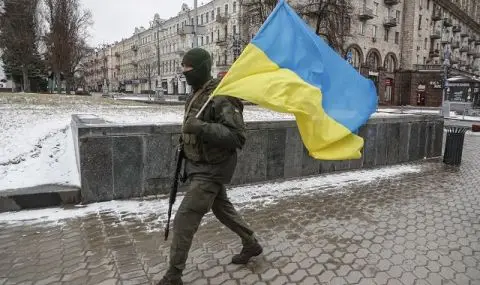About to end the war in Ukraine, it needs three miracles, according to an analysis by Belgian national military expert Colonel Roger Husen, quoted in local media. According to him, there is no prospect of such miracles happening anytime soon, although, as with any war, this one will eventually be settled. In his opinion, no one will be satisfied with this agreement.
Unrealistic expectations
Huzen is of the opinion that negotiations can be started when at least one of the parties considers that they have reached a good position and, if the fight continues, this can change. If both sides, as it is now, expect to improve their positions as hostilities continue, the fighting will continue, he says. For negotiations to take place, one of the two sides must achieve a significant breakthrough, or both sides must be convinced that they will achieve nothing more by fighting. In war, more is not necessarily achieved by investing additional funds, forces and equipment, as Vietnam and Afghanistan have shown, the colonel notes.
In the next two years, there is no battlefield victory for either side, unless there is a miracle, Husen adds. According to him, only a military miracle could lead to the imminent achievement of Russia's goal of full control over the four captured Ukrainian regions of Donetsk, Luhansk, Zaporozhye and Kherson.
Narrow basis for negotiation
In order to negotiate a ceasefire or peace, it is necessary to determine the basis for negotiations with concessions acceptable to both sides. Kiev is demanding an end to the fighting, the restoration of all its internationally recognized territory, the payment of reparations from Moscow and the bringing of Russian President Vladimir Putin to the International Criminal Court.
Russia wants the final accession of the four Ukrainian regions and Ukraine's refusal to join NATO, neutrality and protection of the Russian language, as well as acceptance of the final secession of Crimea, notes Roger. According to him, it is possible to negotiate on security guarantees and on language, but a solution on the territory issue will again require a miracle because it would inevitably lead to one side failing.
An unbearable price for the achievement of peace
Even if the mentioned obstacles are overcome and an agreement is reached, it should be accepted by the whole society in both countries. The more the cost of war grows and affects society, the more it will expect the end of the war to justify the sacrifices made. The price of peace must not exceed the price of war. Any agreement that does not lead to total victory brings economic and political losses. If the Ukrainian President Volodymyr Zelensky were to accept, for example, to give up the Ukrainian coast of the Sea of Azov, this would lead to significant economic damage, because production is developed there. Unlike his rival in Moscow, Zelensky faces the political consequences in a democratic society.
For Putin, the continuation of the war is about his own situation, and the more Russian society feels its influence on their lives, the more limited his options for making a deal become. This applies even more in the absence of new territorial acquisitions in Ukraine. It will be difficult for Putin to push the agreement through the ranks of the power structures, according to Huzen.
His conclusion is that only a miracle can soon bring an end to the war. He notes that wars usually end later than the day they become strategically useless. Neither side will get everything they want, and the Western strategy that "Ukraine must win" will prove illusory. The bloodshed will continue as long as the parties adhere to this view, is the opinion of the expert.
